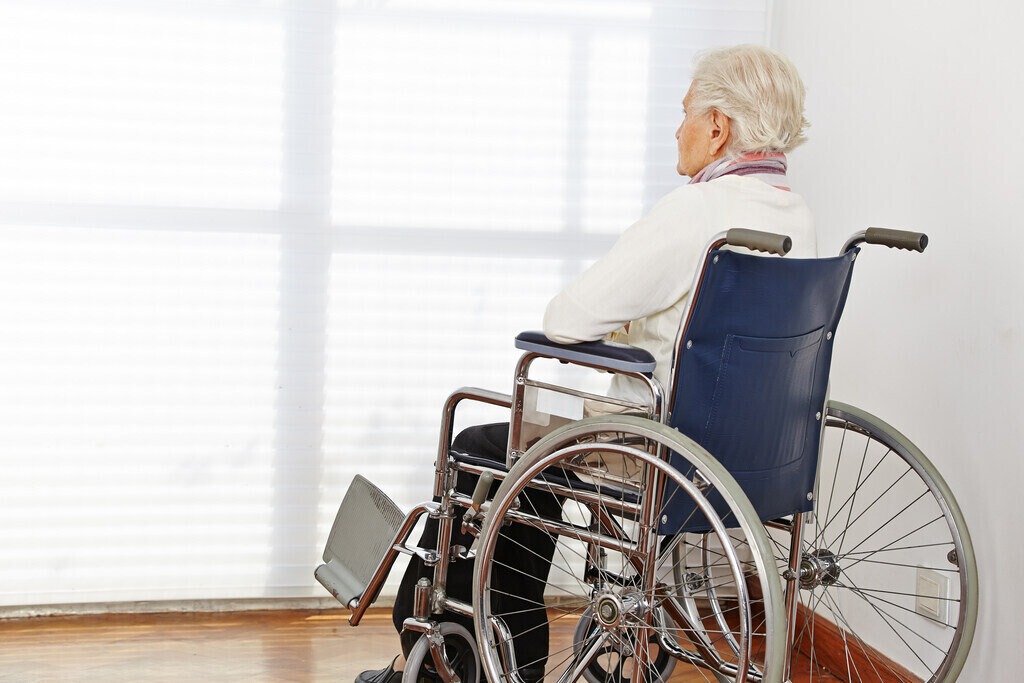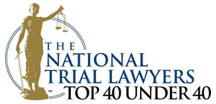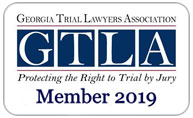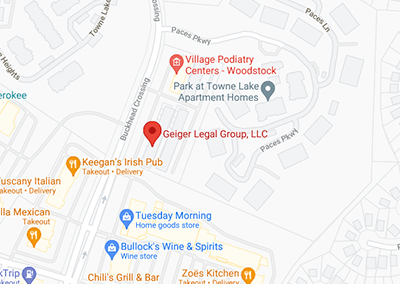
It’s awful to imagine the pain, confusion, and anger that someone endures when a trusted caretaker abuses them. But the reality is that elder abuse in nursing homes is a tragically common problem affecting as many as five million older adults in the United States every year.
Has your loved one been the victim of nursing home abuse and neglect in Georgia? You can save them from further harm and hold the facility accountable by filing a legal claim today. While compensation cannot make up for the pain your family member experienced, it can provide justice for what they’ve endured and make up for any lingering results from the abuse, such as medical bills, emotional distress, and pain and suffering.
At Geiger Legal Group, LLC, we are committed to fighting the epidemic of elder abuse one case at a time. Talk to one of our compassionate nursing home abuse lawyers today. We’ll take immediate action to protect your loved one, investigate your claim, and push aggressively for maximum compensation from the insurance company. You can count on us to hold every responsible party liable for their wrongdoing.
We’re the advocates your senior relative needs when they need it most. Call or contact us today for a free consultation with a Woodstock nursing home abuse attorney.
Types of Nursing Home Abuse
Elder abuse can take many forms. The most common types of nursing home abuse include:
- Physical abuse: Elder abuse is considered physical when a doctor, nurse, or other resident uses physical force to inflict bodily harm. This can include kicking, punching, shoving, or using unnecessary restraints.
- Neglect: Nursing home staff are responsible for seeing to every patient’s basic needs, such as bathing and providing food and water. Alternately, a nurse might withhold medication or refuse to administer treatment for an injury. All of these examples are forms of neglect.
- Financial exploitation: Also called financial abuse, financial exploitation involves a trusted individual using or taking an older adult’s money, assets, or personal property without permission. Wealthy residents are often the targets of theft, but anyone can be the victim of financial exploitation.
- Sexual abuse: When someone requires round-the-clock care in a nursing facility, it’s typically because their health is declining. They’re unable to care for themselves and must rely on others to help them shower, dress, and participate in various activities. This kind of dependence can result in unwanted and non-consensual sexual acts by unethical staff members.
- Psychological abuse: Emotional or psychological abuse involves the use of threats, harassment, humiliation, and intimidation to inflict emotional distress or pain. It can be verbal or non-verbal. Psychological abuse is much more difficult to identify compared to physical abuse. There aren’t visible warning signs, and it can be difficult to distinguish whether behavioral changes are due to cognitive decline or abuse.
- Abandonment: This occurs when someone responsible for providing an older adult care deserts them. Forgetting to turn over a bedridden patient to prevent bedsores is a typical example of abandonment.
Your loved one deserves compassion and care in their old age, and the Nursing Home Reform Act grants them certain rights as nursing home residents. Any violation of these rights leaves the facility or a specific employee liable for any losses the victim suffers due to their abuse or neglect.
What Are the Signs of Nursing Home Abuse?
Sometimes it’s challenging to spot the warning signs of abuse. If there aren’t any physical injuries, you don’t have much to go on other than behavioral cues. Unfortunately, potential warning signs like trouble sleeping and depression don’t necessarily indicate abuse or neglect. Many older adults who live in nursing homes suffer from mental and emotional issues that have nothing to do with abuse.
Still, it’s important to dig deeper if you notice any unusual signs or symptoms that might indicate abuse or neglect. If your loved one cannot speak for themselves or take the necessary action to hold their abuser(s) accountable, you can stand up for their rights with the help of a qualified nursing home abuse attorney.
The most common signs of elder abuse in nursing homes include:
Physical abuse
The signs of physical abuse are often visible. Common examples are:
- Tooth loss
- Damaged personal property, such as eyeglasses or hearing aids
- Unexplained bodily injuries
- Becoming fearful whenever a specific person is around
- Burns, cuts, and bruises
Neglect
Although neglect isn’t always easy to spot, some warning signs include:
- Malnutrition
- Bedsores or pressure ulcers
- Dehydration
- Lack of proper treatment for physical injuries
- Poor hygiene
Financial Exploitation
Financial abuse often involves unusual activity with a patient’s finances. Red flags include: include:
- Withdrawals or transfers the account holder could not have made
- An employee showing unusual interest in their patient’s economic standing
- Unfamiliar signatures on legal documents
- Lack of documentation for recent financial activity
- Missing personal items of significant monetary value
Sexual Abuse
Much like physical abuse, sexual abuse can result in various physical injuries and involve noticeable warning signs. The most common are:
- Bleeding or bruising in and around the anus or genitals
- New diagnosis of an STD
- Low self-esteem
- Pelvic injuries
- Trouble sitting down or walking
Psychological Abuse
Psychological abuse damages a person’s mental state and emotional well-being. The most common warning signs you might notice are:
- New or worsening depression
- Withdrawal from friends, family, and favorite activities
- Mood swings
- Avoiding eye contact
- Sudden behavioral changes
- Unexplained fearfulness
- Silence when certain employees or residents are present
Abandonment
The signs of abandonment are similar to neglect. They include:
- Sudden weight loss
- Confusion or disorientation
- An unexplained decline in physical mobility or cognitive functioning
- Malnutrition
- Soiled clothes or bedding
If you suspect any type of nursing home abuse and neglect occurred, you and your family member deserve to be compensated for the nursing home’s wrongdoing. A Woodstock nursing home abuse and neglect lawyer from Geiger Legal Group, LLC, could help you file a claim and seek the maximum compensation possible.
Can I File a Claim Against a Nursing Home in Georgia?
Multiple parties could be at fault for abuse in a nursing home. They include:
- Facility owners
- Doctors
- Nurses
- Administrative staff
- Manufacturers of defective medical devices, such as wheelchairs
- Maintenance workers
- Other residents
- Third-party contractors performing work at the facility
If your loved one sustained injuries from abuse or neglect, you could file a claim with the nursing home owner’s insurance company. Many facilities have general liability insurance that pays for an injured victim’s losses if the owner or an employer is responsible for the incident.
You might also be able to file a nursing home abuse lawsuit. Instead of settling the matter with the insurance company out of court, you could take the case to trial and let a judge or jury decide whether your family member deserves a financial award for their losses.
Compensation Available in a Nursing Home Abuse Claim
Whether you file an injury claim or lawsuit, you could seek compensation for the losses your loved one suffered. Examples include:
- Medical expenses
- Physical impairment or permanent disability
- Pain and suffering
- Damage to personal property
- Emotional distress
- Diminished quality of life
If your family member died in a nursing home due to abuse or neglect, you could file a wrongful death claim. The compensation you pursue should account for the economic and intangible losses you and your family suffered, such as:
- Loss of companionship, advice, care, and counsel
- Funeral and burial costs
- Lost benefits and services
- Medical expenses from the fatal illness or injury
- Additional costs associated with the victim’s injury, illness, or death
The lawyers at Geiger Legal Group, LLC can determine which types of losses you are eligible to recover and place an approximate monetary value of your case for free during your initial case review.















